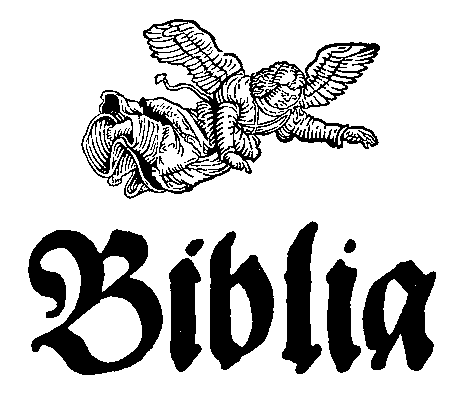To the Ecclesiast and Alpinist:
I found in the Magus' remains a strange note about aberrations in the Christian movements. Apparently a good many of them in the New World and in Britain seek to "disciple" people.
The note below is uncharacteristic of the Magus' charity and somewhat harsh. I think it may be a quotation from some other author.
----
Discipling people is an extension of power and control beyond that of oneself. It is stronger and more powerful than any external control, any police state, or the threat of force. It is the most terrible secret of power -- I do not need to control you if you can be convinced to do it for me for yourself. Human beings have not always had an inner life. But the beginnings of the practices of discipling are to convince people to control themselves instead of merely being controlled by force.
'To Disciple' may be identified neither with an institution nor with an apparatus; it is a type of power, a modality for its exercise, comprising a whole set of instruments, techniques, procedures, levels of application, targets; it is a 'physics' or an 'anatomy' of power, a technology. And it may be taken over either by 'specialized' institutions (the churches or 'congregations' of the present age), or by institutions that use it as an essential instrument for a particular end (small groups, emerging Christianity), or by pre-existing authorities that find in it a means of reinforcing or reorganizing their internal mechanisms of power (one day we should show how intra-familial relations, essentially in the parents-children cell, have become 'discipled', absorbing since the classical age external schemata, first educational and military, then medical, psychiatric, psychological, which have made the family the privileged locus of emergence for the disciplinary question of the normal and the abnormal); or by apparatuses that have made discipline their principle of internal functioning (the discipling of the administrative apparatus from the Puritan period), or finally by community apparatuses whose major, if not exclusive, function is to assure that discipline reigns over society as a whole (the small group leader or lead pastor).
Monday, November 18, 2013
Saturday, November 16, 2013
Don't Blink
To the Ecclesiast and Alpinist:
I have survived the strangest debacle. I do not know what happened to the Magus. I am left in charge of his writings, experiments, and diary. We went to investigate the strange pictures of Luther and these doctors mentioned by the Alpinist in the country of Britain. Quickly we were woven into a strange affair that required more of us than we could muster. We are men of Geist who welcome unknown ideas not adventure on land and through corridors.
I barely escaped because I kept my eyes wide open. We thought we were near the root of this strange lineage of doctors and their investigations of liberty and so of Geist -- we thought we were able to ask of this strange gentleman and his companion about time. So much of Geist is about time and so much of our modern era has been able to dominate space and so ignore time. When it treats time it does so as if it were physical extension not as another wobbly part of our existence. In Geist time is more than just a dimension of things and more than just a second rate thing to space.
But my good Magus blinked. We had encountered thousands of remarkable angelic statuary. But he blinked and all was lost. I did not and made it barely out.
Magus Minor

I have survived the strangest debacle. I do not know what happened to the Magus. I am left in charge of his writings, experiments, and diary. We went to investigate the strange pictures of Luther and these doctors mentioned by the Alpinist in the country of Britain. Quickly we were woven into a strange affair that required more of us than we could muster. We are men of Geist who welcome unknown ideas not adventure on land and through corridors.
I barely escaped because I kept my eyes wide open. We thought we were near the root of this strange lineage of doctors and their investigations of liberty and so of Geist -- we thought we were able to ask of this strange gentleman and his companion about time. So much of Geist is about time and so much of our modern era has been able to dominate space and so ignore time. When it treats time it does so as if it were physical extension not as another wobbly part of our existence. In Geist time is more than just a dimension of things and more than just a second rate thing to space.
But my good Magus blinked. We had encountered thousands of remarkable angelic statuary. But he blinked and all was lost. I did not and made it barely out.
Magus Minor

Monday, November 11, 2013
Ljubljana
Dear Macedonian,
I once visited a fair city, Ljubljana, but all the stores were closed for Cyril and Methodius. Is this anywhere close to Macedonia? I admit, my ecclesiastical work precludes far-flung travel or careful study of maps.
While in the great city of Ljubljana, I did encounter this devil:
Do you know him? Is he one of ours?
In Geist,
The Ecclesiast
I once visited a fair city, Ljubljana, but all the stores were closed for Cyril and Methodius. Is this anywhere close to Macedonia? I admit, my ecclesiastical work precludes far-flung travel or careful study of maps.
While in the great city of Ljubljana, I did encounter this devil:
Do you know him? Is he one of ours?
In Geist,
The Ecclesiast
Subscribe to:
Posts (Atom)

